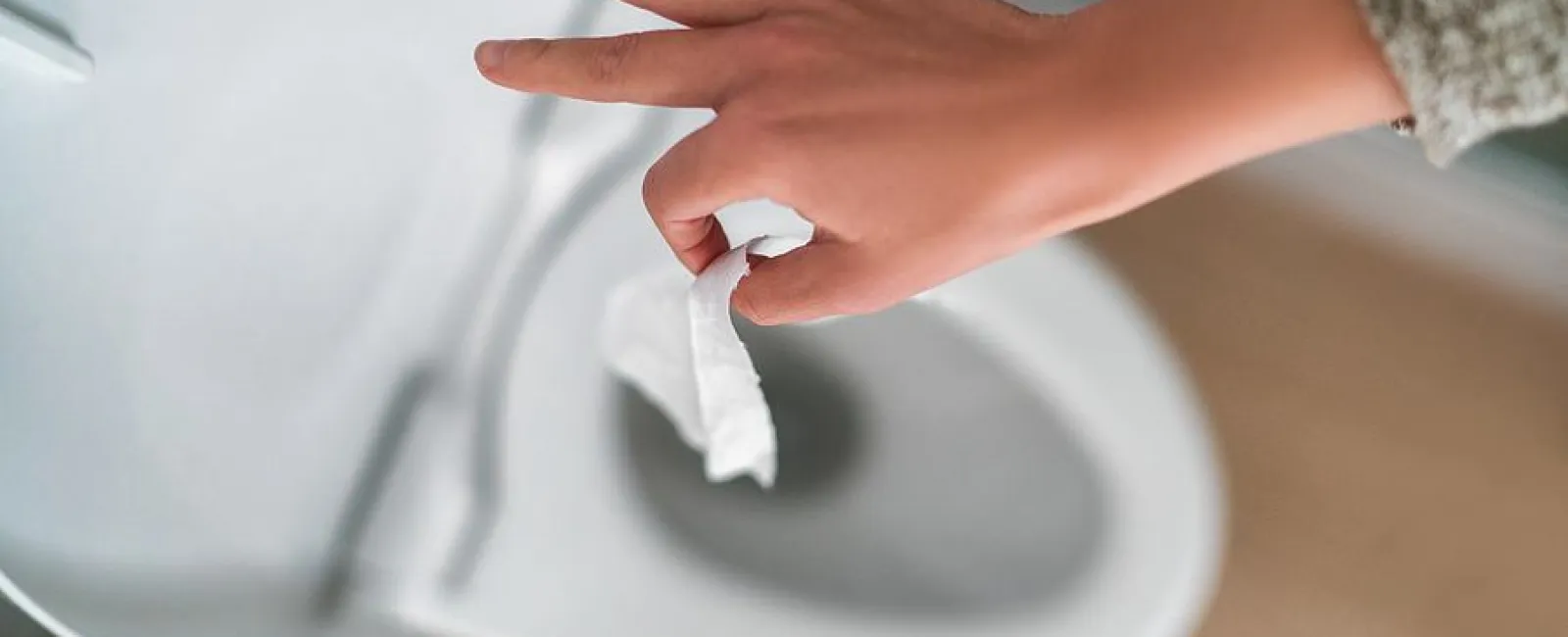Are Flushable Wipes Really Flushable?
No, flushable wipes are not truly flushable. Despite what the packaging might say, these wipes should never be flushed down the toilet. Unlike toilet paper, which is designed to disintegrate quickly in water, flushable wipes remain largely intact after being flushed. This leads to many problems, both for your home plumbing and municipal wastewater systems.
The Myth of Flushable Wipes
The idea that flushable wipes are safe to flush is a myth perpetuated by clever marketing. Many consumers have been led to believe that these wipes are just as safe for their plumbing as toilet paper. However, the reality is quite different. Flushable wipes do not break down in water like toilet paper, which means they can easily cause blockages in your pipes, leading to costly repairs and unpleasant sewage backups.
Manufacturers have used the term "flushable" since the 1980s. At that time, the paper industry began marketing wipes as flushable simply because they were small enough to pass through a toilet. But just because something can pass through a toilet doesn't mean it's safe to flush. The wipes that make it through your toilet often get stuck further down the line, where they can cause significant blockages in the sewage system.
The Environmental Impact of Flushable Wipes
The impact of flushing wipes goes beyond just your home. Municipal wastewater systems also suffer due to the widespread use of flushable wipes. Wastewater treatment plants are designed to handle human waste and toilet paper, both of which break down naturally in water. Flushable wipes, however, do not break down, leading to complex and expensive blockages to clear.
These blockages, sometimes called "fatbergs," can grow to massive sizes. For example, in London, a fatberg made up of flushable wipes and fats was discovered that weighed as much as 11 double-decker buses. Clearing these blockages costs municipalities millions of dollars annually—costs ultimately passed on to taxpayers.
Why Are Flushable Wipes Still Marketed as Flushable?
Given all these issues, you might be wondering why flushable wipes are still marketed as such. The answer lies in the lack of strict regulations around what can be labeled "flushable." Manufacturers have long used their own definitions and methods to determine what constitutes a flushable wipe. This often means that as long as a wipe can physically pass through the toilet, it's deemed flushable—even if it causes significant problems further down the line.
In response to the growing problem, the Association of the Nonwoven Fabrics Industry (INDA) and its European counterpart, EDANA, introduced guidelines in 2009 for a truly flushable wipe. These guidelines require that flushable wipes must clear toilets and drainage systems under expected usage conditions, be compatible with wastewater treatment systems, and break down quickly in water.
However, despite these guidelines, many wipes on the market still do not meet these standards. This is why it's so important to avoid flushing wipes, even if the packaging claims they are flushable.
What Happens When You Flush a Wipe?
When you flush a wipe, it doesn't break down like toilet paper. Instead, it remains largely intact, traveling through your pipes and potentially causing a blockage. If the wipe doesn't get caught in your home's plumbing, it continues into the municipal sewage system, where it can combine with other wipes, fats, and oils to form a blockage.
These blockages can cause sewage to back up into homes and streets, leading to costly repairs and environmental damage. Wastewater treatment plants also have to spend significant resources to remove these blockages, which increases the cost of maintaining the sewage system.
The Real Solution: Stop Flushing Wipes
The best way to prevent these issues is simple: stop flushing wipes. Even if the packaging says a wipe is flushable, it's safer to dispose of it in the trash. This small change can help protect your plumbing, save money on potential repairs, and reduce the burden on wastewater treatment systems.
If you're looking for alternatives, consider switching to a bidet or using reusable cloths. Bidets are an environmentally friendly option that eliminates the need for wipes, while reusable cloths can be washed and reused, cutting down on waste.
Conclusion
Despite what the packaging might claim, flushable wipes are not truly flushable. These wipes do not break down in water like toilet paper, leading to significant problems for home plumbing and municipal sewage systems. To protect your home and the environment, it's best to avoid flushing wipes altogether and opt for more sustainable alternatives.
In short, just because you can flush a wipe doesn't mean you should. Make the switch today and help prevent costly plumbing issues and environmental damage.


